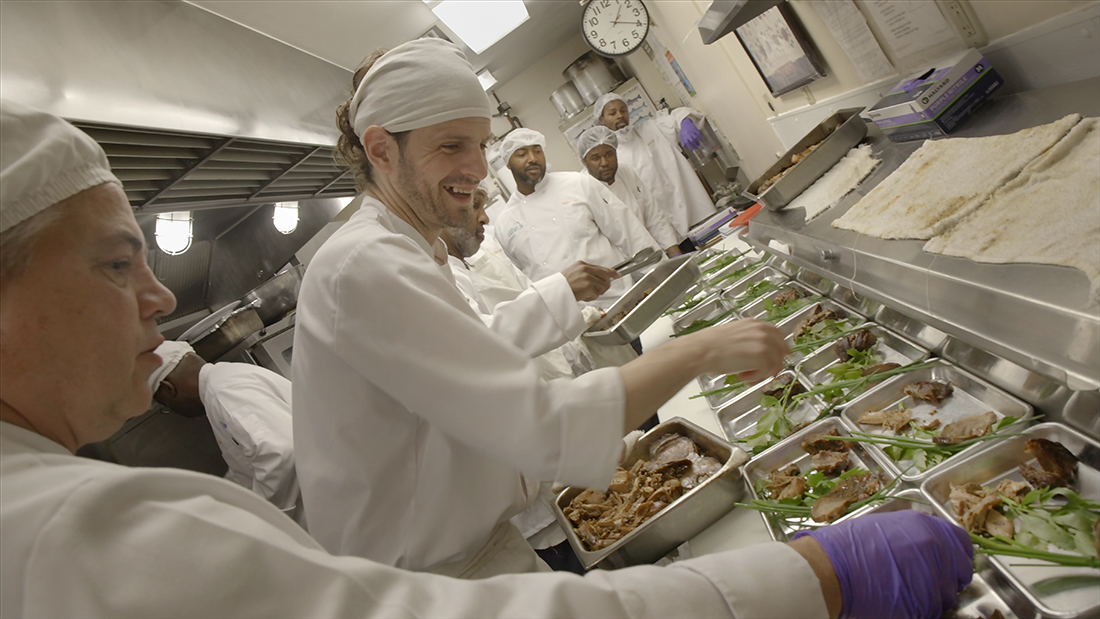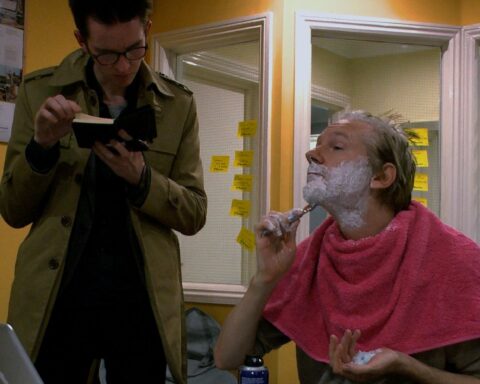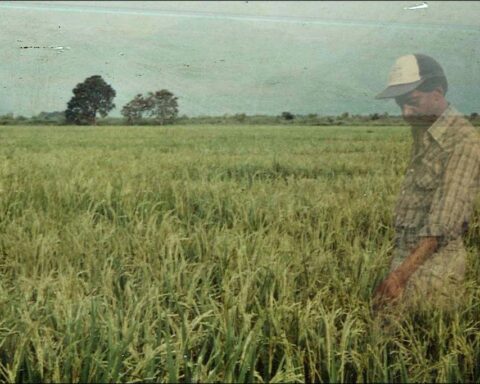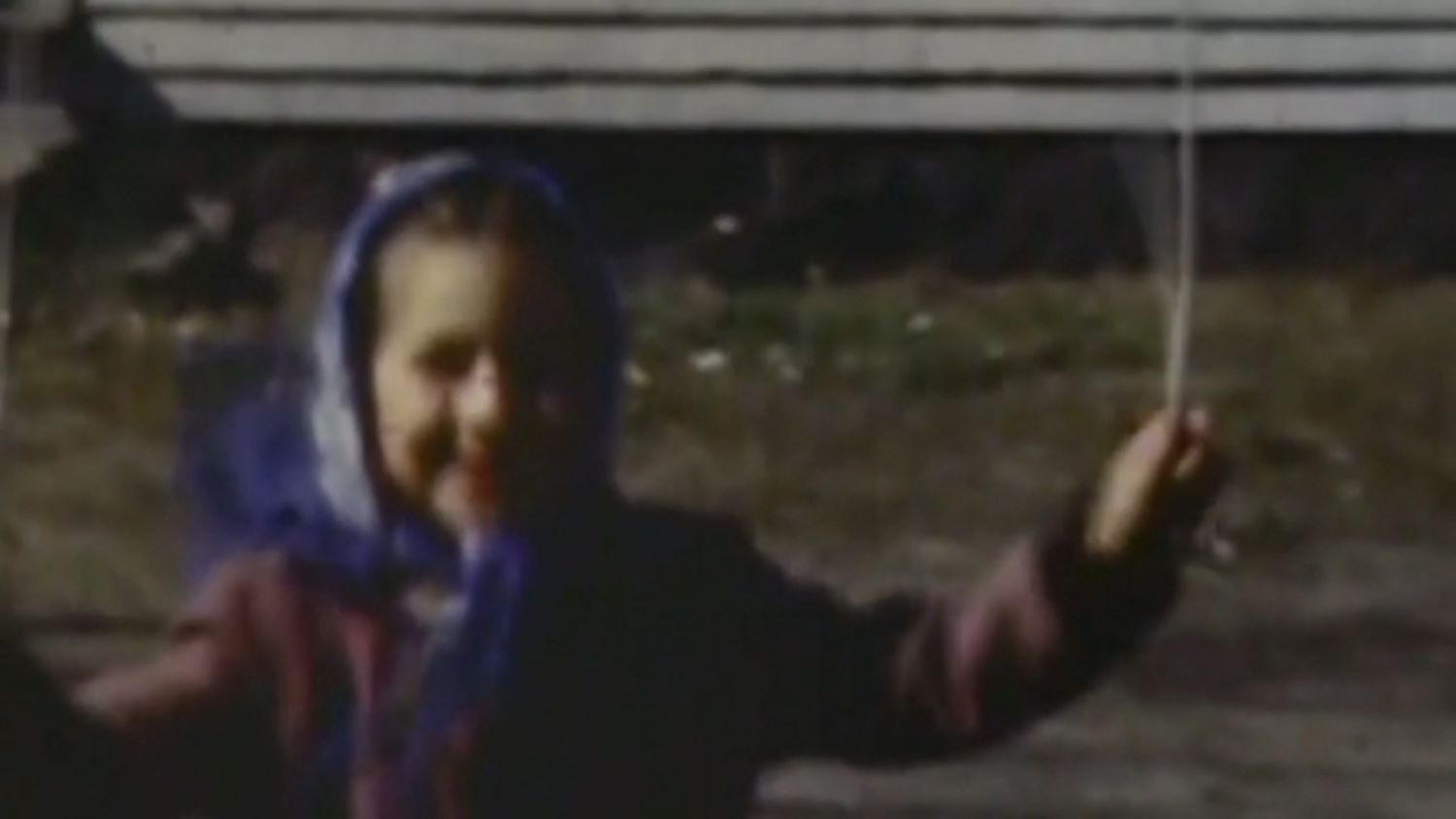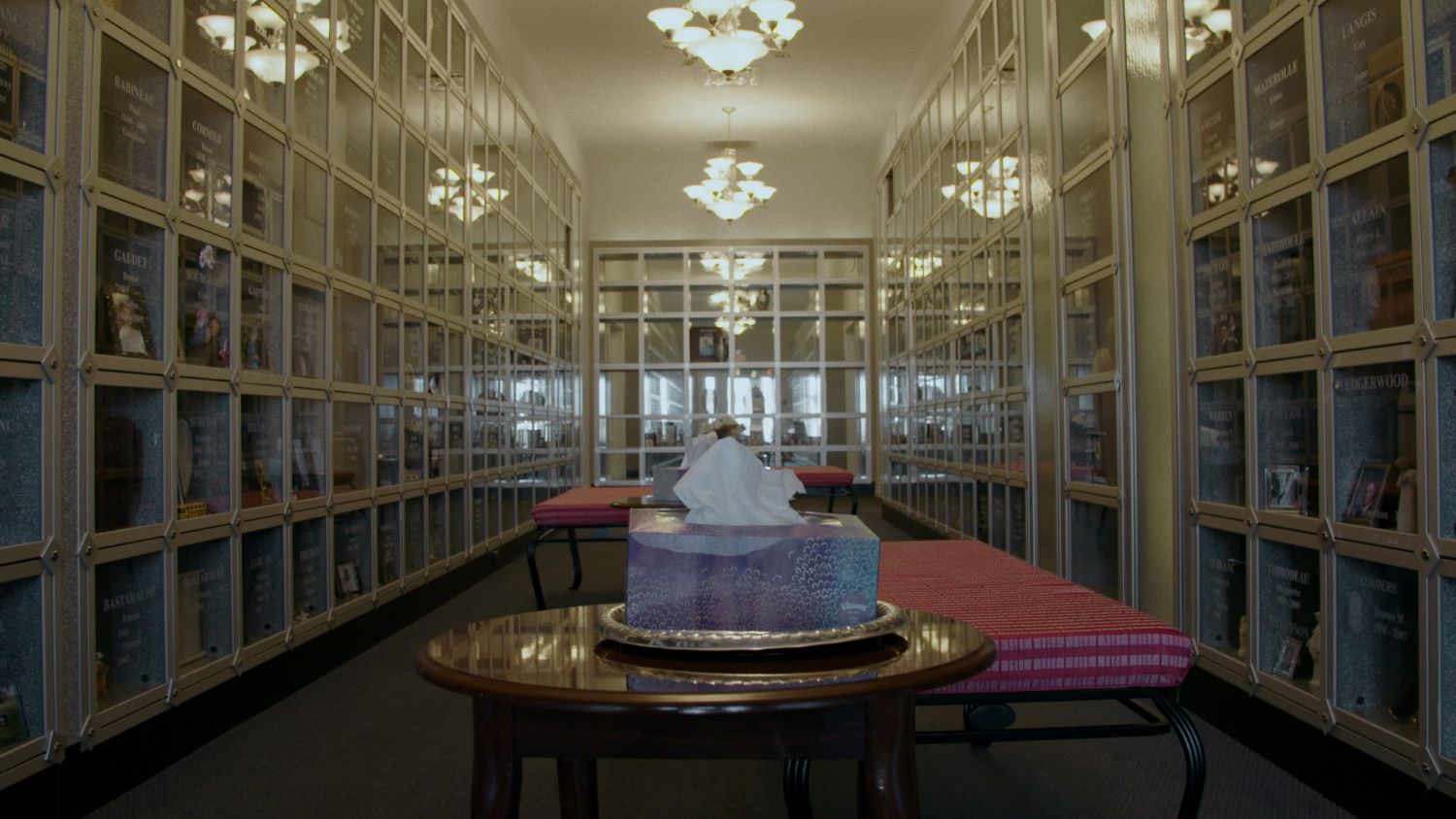Coldwater Kitchen
(USA, 90 min.)
Dir. Mark Kurlyandchik, Brian Kaufman
Chef Jimmy Lee Hill has a secret recipe: he helps prison inmates by handing them a knife. He’s been helping to rehabilitate inmates at Lakeland Correctional Facility in Coldwater, Michigan for thirty years using the art of fine dining. His culinary vocational program instils a sense of purpose within inmates. It provides them with hands-on skills and training that they can bring to work opportunities when they are released on parole. The inmates at Coldwater don’t get much chance to cook while they’re incarcerated, so Chef Hill and his team of mentors have their work cut out for them. Men who can barely boil an egg learn the difference between mincing and dicing. Soon, they’re making charcuterie, boiling lobster, and rolling ravioli. The knives, meanwhile, all stay tethered to the work stations, so cuts only arise if inmates miss their marks.
Coldwater Kitchen, directed by Mark Kurlyandchik and Brian Kaufman, focuses on three participants in Chef Hill’s culinary program. Hill admits that some inmates simply sample the program so that they can take a break from the bland grub in the cafeteria. Others, though, display a strong desire to learn, grow, and improve. If cooking happens to be the route to reform, they’ll enjoy some fancy bites along the way. Using a character-driven cinema vérité approach, the film features all the obligatory mouth-watering shots of decadent food as inmates learn the craft of haute cuisine. It’s food porn with a sense for social justice.
Meet the Chefs-in-Training
Among the foodies-in-the-making is Dink Dawson, a former rapper doing time for selling drugs. He’s approaching parole and eager to return to society and provide for his family. Dawson has a natural hand in the kitchen and works a mean grill. Soon enough, he’s back home and a self-made man. Working his own home service with the power of Instagram and then a pop-up, he is living proof that Chef Hill’s program whips up genuine reform.
Meanwhile, Ernest Davis devotes himself to the program knowing there’s a real chance he’ll never cook in another kitchen. Davis faces a life sentence without parole, but the program gives him hope. Moreover, it’s evidence of an earnest desire to rehabilitate and contribute to society. The gentle man is hardly the person he was when a violent crime he committed 34 years ago at age 17 put him in prison. But like the French sauces he learns to prepare, his rehabilitation isn’t an instant recipe. It’s a simmering process that can topple like a soufflé. But like Ernest, the outside world changes and the film finds a strong narrative for second chances as he masters his craft in the kitchen.
Coldwater Kitchen observes how the program isn’t all success stories, though. The film finds a dramatic arc as it follows Brad Leonard, who seems like an ideal candidate for the program. Leonard, a former line cook battling an opioid addiction, enters the program with gusto. Chef Hill sees real potential in Leonard and the inmate uses his experience to teach fellow prisoners how to work the grill and handle a knife. His zippy energy suggests enthusiasm, but he struggles to focus. Chef Hill worries that Leonard is falling back into his habits even though he’s among the most ambitious hands in the kitchen.
Cooking Up a Social Experiment
The film follows the program over time as the aspiring chefs cook up some awesome meals. Christmas inspires a festive smorgasbord, while Chef Hill invites renowned chefs to join them in breaking bread. Even the pro cooks comment that the food in Lakeland is as good as that of any high-end restaurant. The cutlery might be a little cumbersome, as precautions remain against inmates stealing them to make shanks, but that’s part of the experience.
As Kurlyandchik and Kaufman track the progress that Dawson, Davis, and Leonard make throughout their journeys, their stories intersect with conversations about justice and reform. They’re all stories of second chances as Dawson’s storyline inspires a genuine success story. Davis’s thread features the emotionally charged proceedings in which he pleads his case to re-enter society, while the wife of the man he killed tearfully asks the judge to keep him behind bars. Leonard’s story, meanwhile, illustrates how there’s no one-size-fits-all story for reform. His development surprises Chef Hill, but the stalwart instructor keeps making the long drive to Coldwater with an eye for helping any man he can.
The doc boasts a quartet of strong characters who raise important questions about rehabilitation. The intimate glimpse into the facility’s kitchen allows audiences to see these men as they strive to create the best version of themselves and emerge from a system that often puts people at their worst. Besides finding their second chances through cooking, the metaphor of food underscores the philosophy of Chef Hill’s program: Dining is a social experience. Keeping people alone and behind bars forever does the world about as much good as TV dinners eaten in isolation.
Coldwater Kitchen screens at the 2023 Windsor Film Festival.




